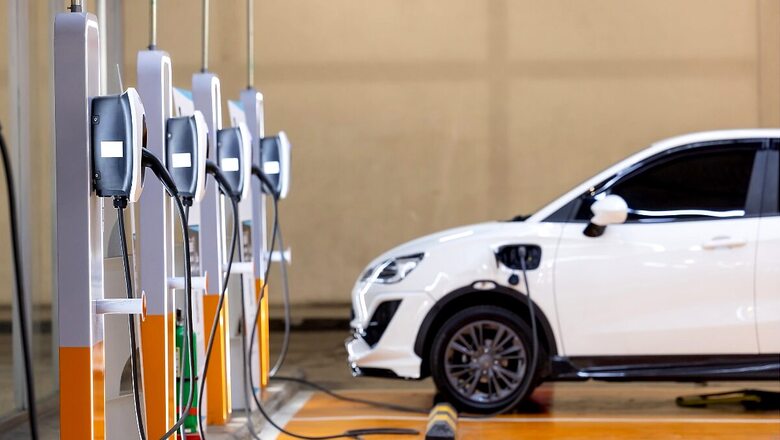
views
As of February 2, 2024, India boasts 12,146 operational public EV charging stations.
This marks a substantial increase from the past few years, reflecting the country’s commitment to supporting EV adoption. To put this growth into perspective, there were only 6,486 public EV charging stations in March 2023.
This near doubling of the number of charging points in less than a year highlights the rapid pace at which India is developing its EV infrastructure. The expansion is driven by various factors, including governmental policies, urbanization patterns, and advancements in EV technology.
Recently, we interacted with Dinesh Arjun, CEO Cofounder, Raptee.HV. He shed light on the growth of EV charging points in India.
Geographic Penetration of Charging Points
Urban and Metro Overview
The distribution of EV charging stations is heavily concentrated in urban and metropolitan areas. Cities like Delhi, Mumbai, Bangalore, and Chennai have the highest density of charging points. This urban focus aligns with higher EV adoption rates in these regions, driven by larger populations, better infrastructure, and greater environmental awareness.
State-wise Distribution
Delhi, Gujarat, and Maharashtra lead with the highest number of EV charging stations. These states have proactively implemented policies and incentives to encourage EV adoption and infrastructure development. Conversely, some states lag behind, highlighting a need for more uniform policy implementation across the country.
Key Players in the EV Charging Market
The Indian EV charging station market is projected to grow at a compound annual growth rate (CAGR) of 25 percent from 2024 to 2029. Major companies operating in this sector include Tata Power Company Limited, Charzer Tech Pvt Ltd., Mass-Tech Controls Pvt Ltd., ABB Ltd., and Exicom Telesystems Ltd. These companies are instrumental in expanding the charging infrastructure, enhancing technology, and making EV charging more accessible to the public.
A notable recent development is the $19 million commitment from British International Investment (BII) to CHARGE ZONE, India’s fastest-growing EV charging network. This significant investment aims to accelerate the expansion of CHARGE ZONE’s network, further boosting the availability of charging points across the country.
The Road Ahead: What the Sector Needs to Explode
To achieve widespread EV adoption and meet the government’s target of 30 percent EVs by 2030, India needs to address several challenges. Here’s what the sector requires to truly flourish:
- Increased Public Charging Infrastructure: The current ratio of 1 charging station per 135 EVs is far below the global standard. To meet the projected demand, India needs to significantly ramp up its charging infrastructure, targeting a ratio of 1 station per 20 vehicles.
- Integration of Renewable Energy: Utilizing renewable energy sources for EV charging can help meet the growing power demand sustainably, reducing the environmental impact.
- Development of Fast-Charging Technology: Investing in fast-charging technology will reduce charging times, making EVs more convenient for long-distance travel.
- Incentivizing Private Sector Investment: Government incentives can encourage private companies to invest in EV infrastructure, accelerating the sector’s growth.
The Need for Charging Points Like Petrol Pumps
As EV adoption increases, the need for a widespread and reliable network of charging points becomes crucial, much like the existing network of petrol pumps. Significant capital investment is required to build this infrastructure, but it is essential for the EV sector’s success. Ensuring that EV owners can charge their vehicles conveniently and reliably will drive further adoption and confidence in electric mobility.
Conclusion
India’s journey towards becoming an EV-friendly nation is well underway, with a significant increase in the number of public charging stations. However, to achieve the ambitious goals set for 2030, continued investment in infrastructure, technology, and policies is essential.
By addressing these needs, India can ensure a smooth transition to electric mobility, benefiting the environment and enhancing the overall transportation landscape.


















Comments
0 comment